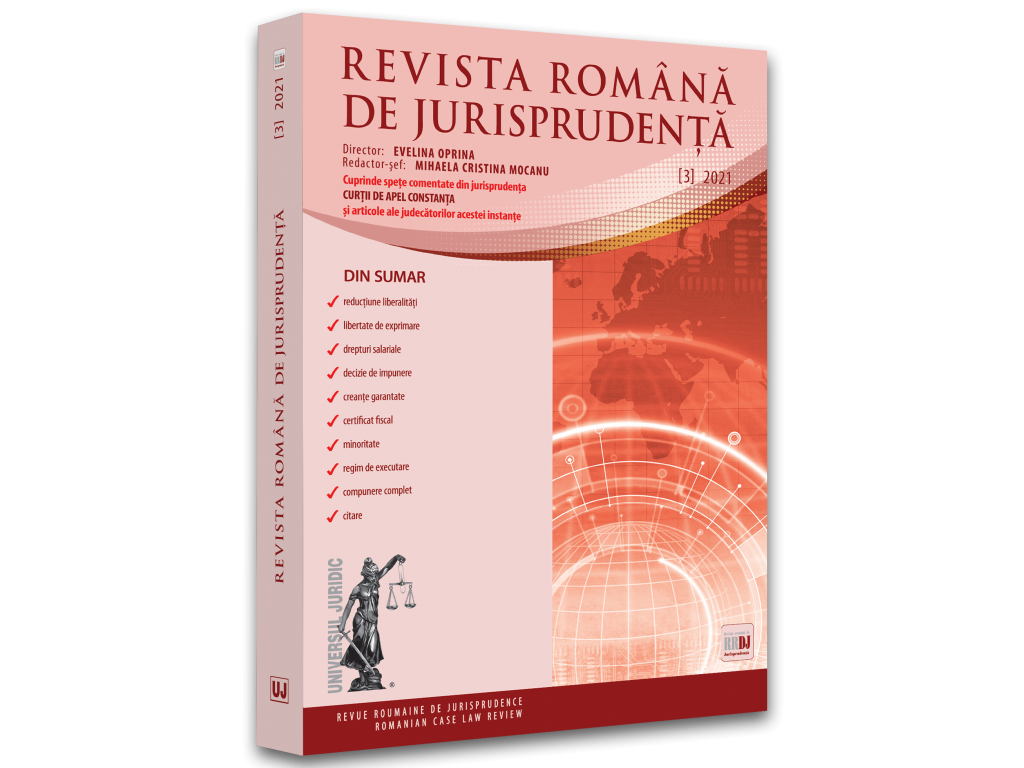Joint liability for wrongful termination of a contract, in relation to all persons involved in the decision-making act
DREPTUL MUNCII ŞI ASIGURĂRILOR SOCIALE
Abstract
As regards the unlawful act imputed by the claimant to the defendant, it is held that it consists in issuing the notice of termination of the lease contract No 776/2007 concluded with [...], a termination which generated in the employer's assets a loss of 522,842 lei, established by court decision.
However, it is important to point out that the claimant has failed to prove the conditions under which that notification was issued, that the measure was taken unilaterally by the defendant in its capacity as manager, without the opinion of the other competent departments. Under those circumstances, the existence of an unlawful act on the part of the defendant as a single element directly causally connected with the damage claimed cannot be accepted. The provisions of the Internal Rules and of the job description, which govern the liability of the manager, cannot alone constitute grounds for liability for the whole of the damage suffered, given that the manager acted as the last link in a chain of decisions which intervened in connection with the drafting of such document.
General provisions such as „responsible for the conduct and coordination of all activities” and „liable for damages caused by acts of reckless management, misuse or negligent use of the means and funds of the establishment that such person manages” do not have the meaning of exclusive fault for any act of the employer. It is necessary to analyse in concrete terms in relation to each person involved in the issuing and appropriation of the act what powers were improperly exercised and what part of the damage suffered by the employer is due to such person as a result, in relation to the duties incumbent on each signatory, which by their combined action produced the harmful result.
In the light of those considerations, and taking the view that there can be no question of exclusive fault on the part of the defendant in committing a wrongful act which was the sole cause of the damage to the employing establishment, the Court of Appeal considers that the defendant cannot be held liable for the whole of the damage, since financial liability in the context of legal employment relationships is an individual liability, excluding, in principle, joint and several liability.
According to the provisions of Article 255 of the Civil Code, when the damage was caused by several employees, the amount of the liability of each employee is determined in relation to the extent to which he contributed to its occurrence, the divisibility of liability being expressly regulated. In this way, by excluding joint and several liability, the employee is protected from being prosecuted for an amount greater than the actual damage caused through his fault.
However, in the present case, the Court considers that the defendant cannot be held liable alone for all the damage found by the court, since it is not the only person who was responsible for issuing the termination notice. Since its contribution to the occurrence of that damage was not separately identified by the plaintiff according to the specific duties of the defendant, there can be no question of a definite damage to be imputed to the defendant in the context of the provisions of Article 255 of the Labor Code, which enshrines joint obligations to make good the damage caused by several employees.








